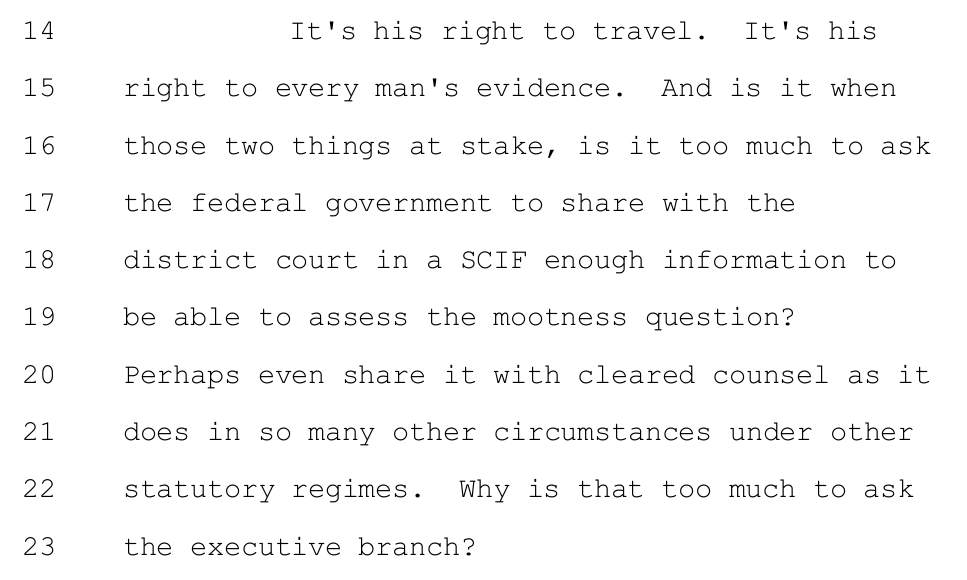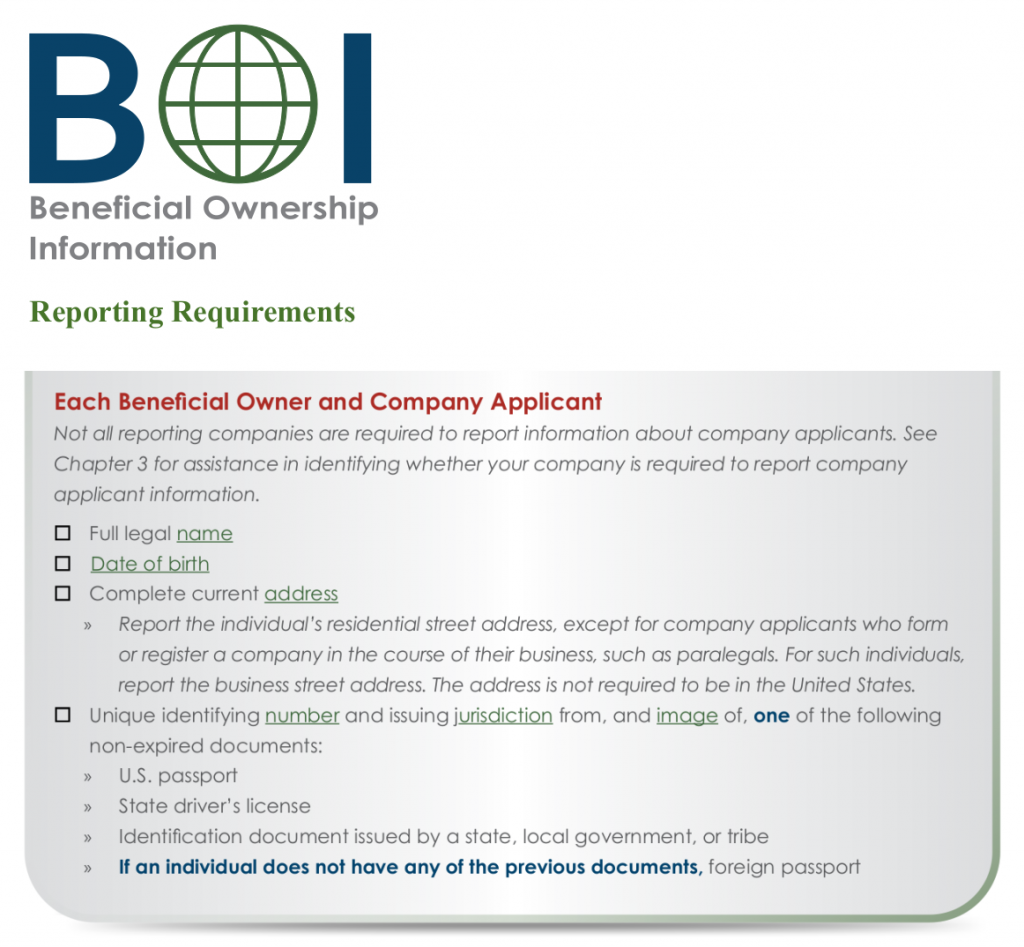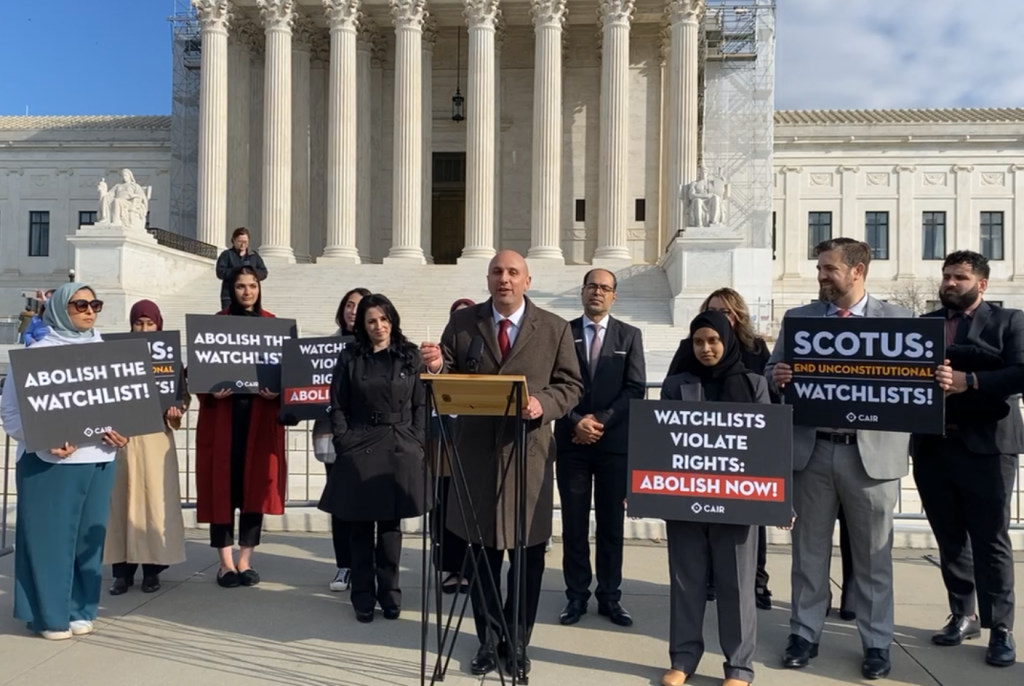Today the US Supreme Court heard more than an hour of
oral argument (
transcript,
MP3 audio) in the case of
FBI v. Fikre, the latest in a
series of cases in which the government has tried to avoid having a judge or jury review the criteria,
procedures, and factual basis (if any) for no-fly decisions by removing previously blacklisted people from the
no-fly list after they sue the government, and then asking courts to dismiss their lawsuits as “moot”.
In order to get such a complaint dismissed as “moot”, the government has the burden of showing that “subsequent events made it absolutely clear that the allegedly wrongful behavior could not reasonably be expected to recur”, according to the District Court.
Inquiring minds on the Supreme Court wanted to know how the government could meet that burden — or whether it could ever do so — without disclosing the basis for the initial no-fly decision and/or what changes had been made to no-fly decision-making criteria or procedures.
Several Justices expressed “sympathy” with the government, but concern for due process:
 Justice Gorsuch, for example, wanted to know why the government wouldn’t even tell a judge in a “Sensitive Compartmented Information Facility” (and maybe the plaintiff’s lawyer, if the government would give them a security clearance) anything about a no-fly decision:
Justice Gorsuch, for example, wanted to know why the government wouldn’t even tell a judge in a “Sensitive Compartmented Information Facility” (and maybe the plaintiff’s lawyer, if the government would give them a security clearance) anything about a no-fly decision:
 Read More →
Read More →



